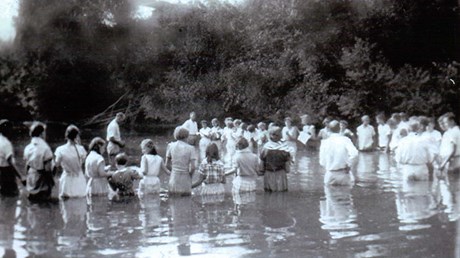When your religion is something you choose, not to choose is not an option.

For most evangelicals in America, conversion is a central part of one’s religious experience. They are accustomed to hearing testimonies at church, on television, or in print. They would not be surprised, then, by historian Lincoln A. Mullen’s identification of conversion as a major American religious theme. What might come as a surprise, however, is Mullen’s claim that conversion is not unique to evangelicalism. Instead, he argues, it is perhaps “the defining feature of what American religions had in common.”
Mullen’s new book, The Chance of Salvation, is a history of conversion in 19th-century America. Relying on numerous conversion stories, literature promoting conversion, and polemics against conversion, Mullen has crafted a religious synthesis akin to Sidney Mead’s The Lively Experiment (1963) or Sydney Ahlstrom’s Religious History of the American People (1972). As a work of synthesis, the book is less concerned with the specific nuances of each religious tradition and more concerned with what all the traditions held in common. And one essential commonality, according to Mullen, was conversion. The fact that there was such “variety of conversions” in the United States actually helped create a shared understanding of religion—that religion is something you choose, as opposed to something you inherit. This freedom to choose, however, implied an obligation. The book speaks of “obligatory religious choice” or the “burden to choose.” As Mullen states it: “…in the United States, people not only may pick their religion, they must.”
Forced Choice
Mullen works within two overarching frameworks to build this argument. First, …
Source: Christianity Today Most Read